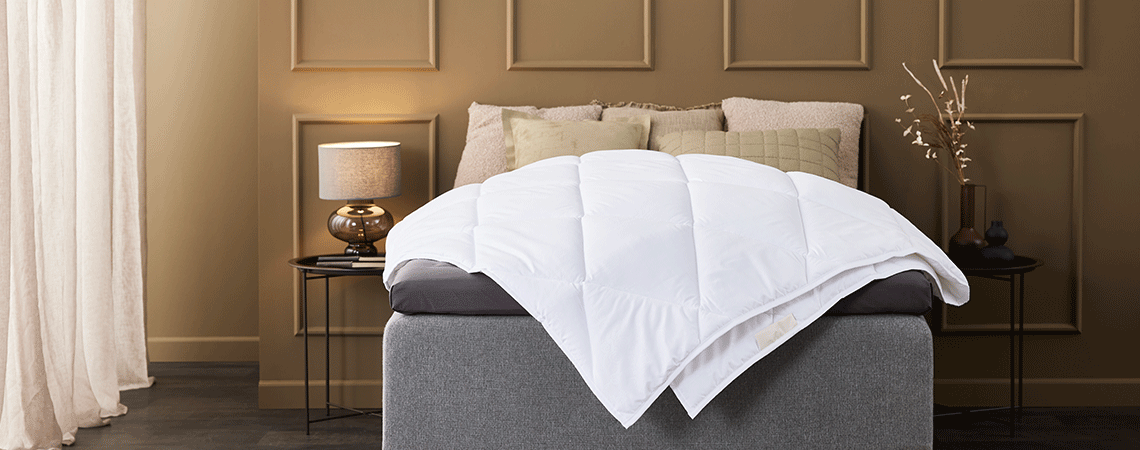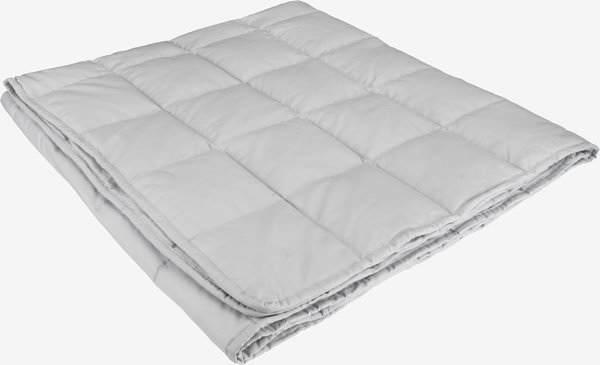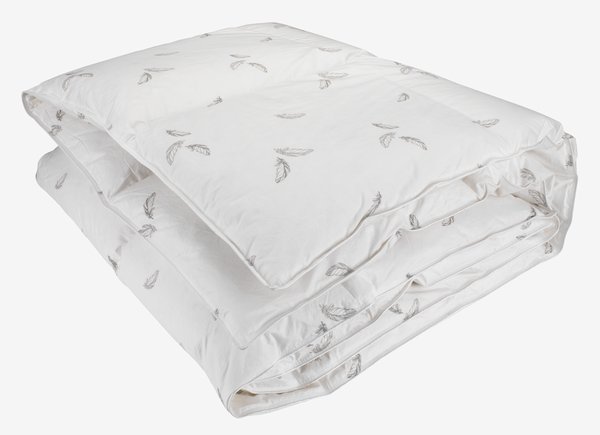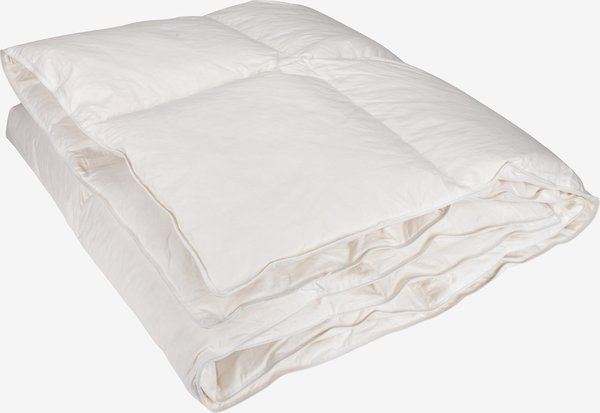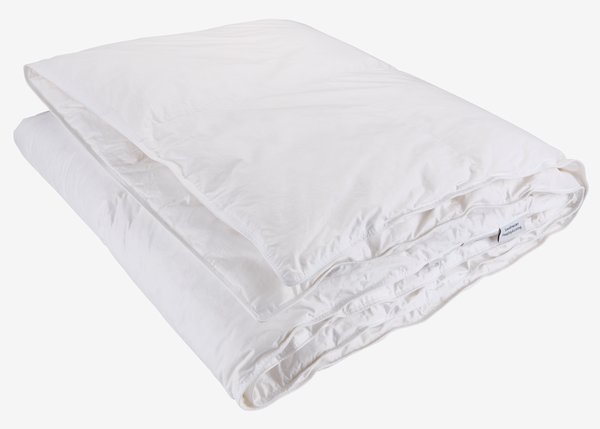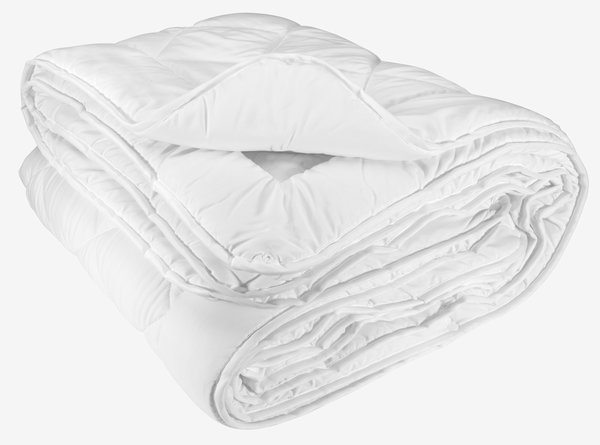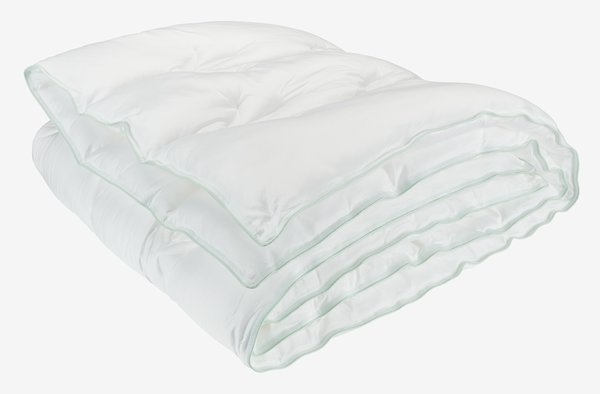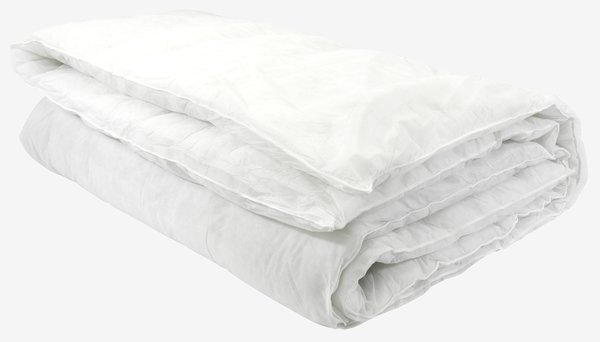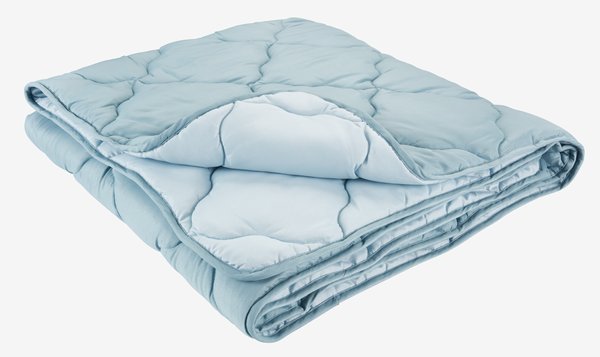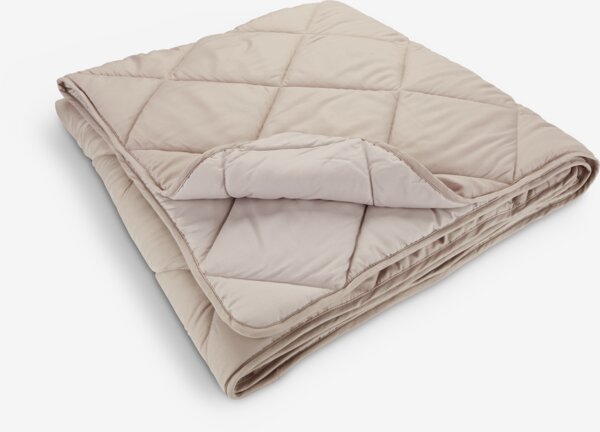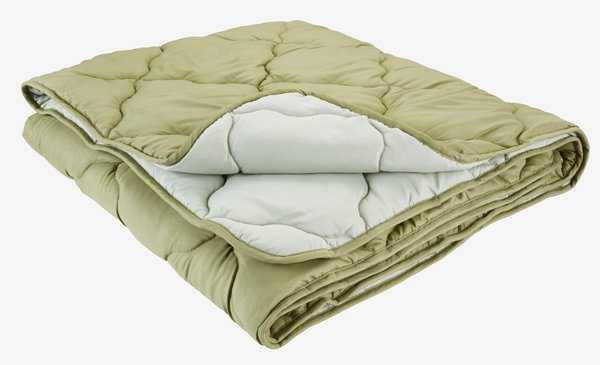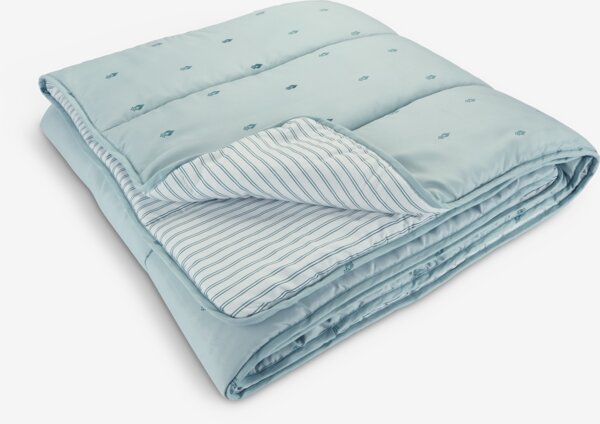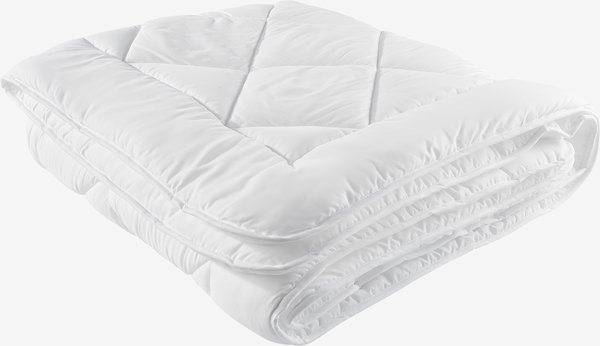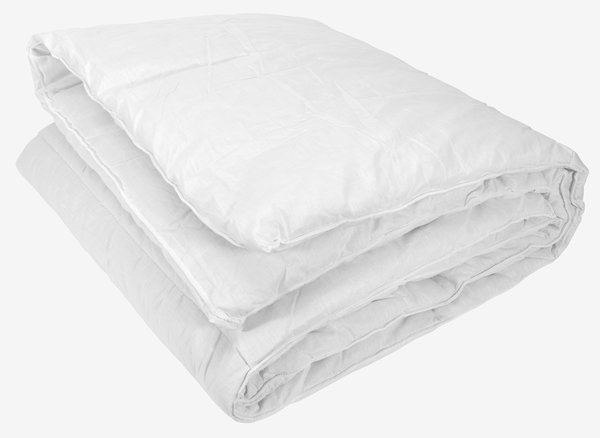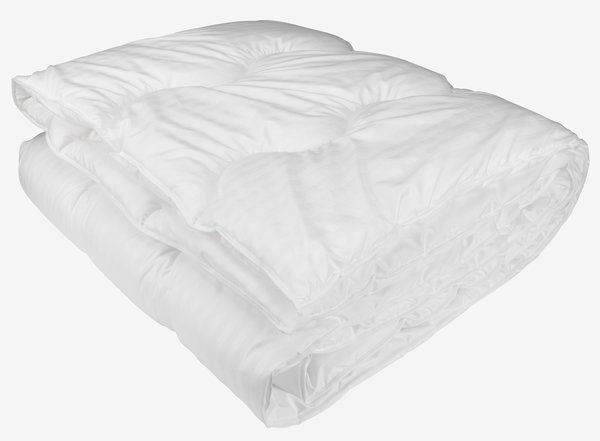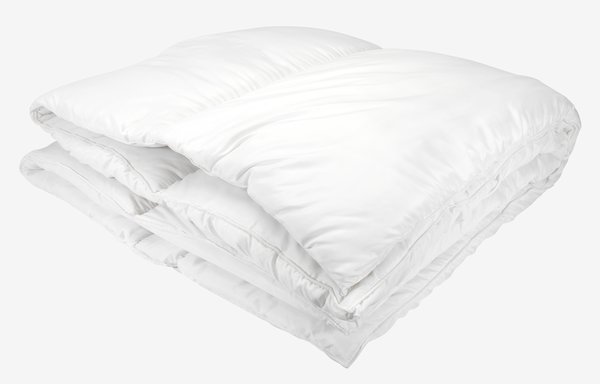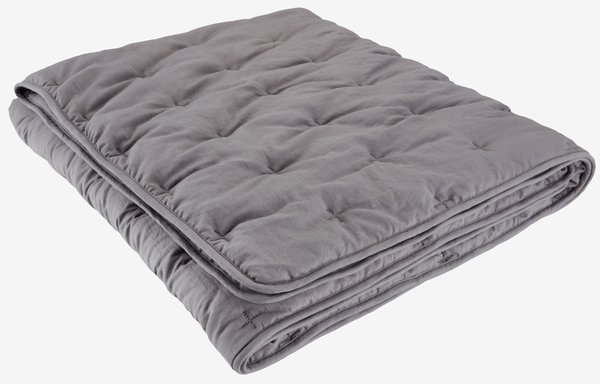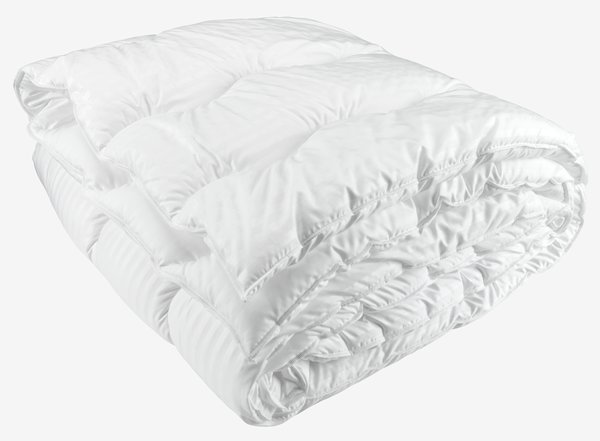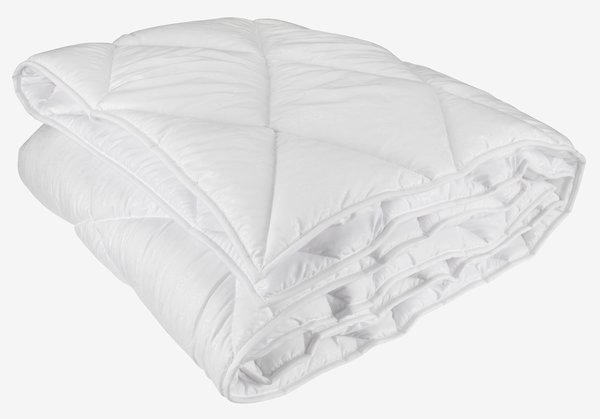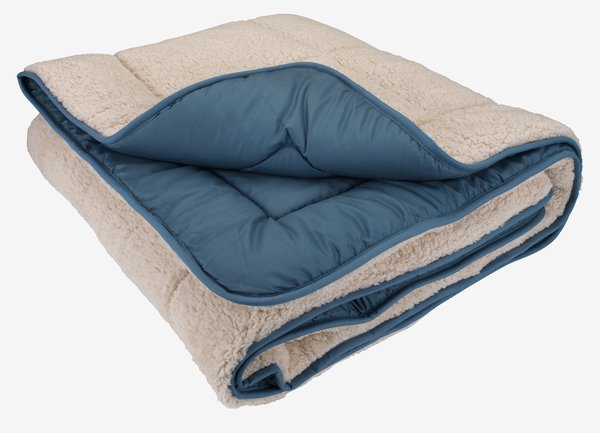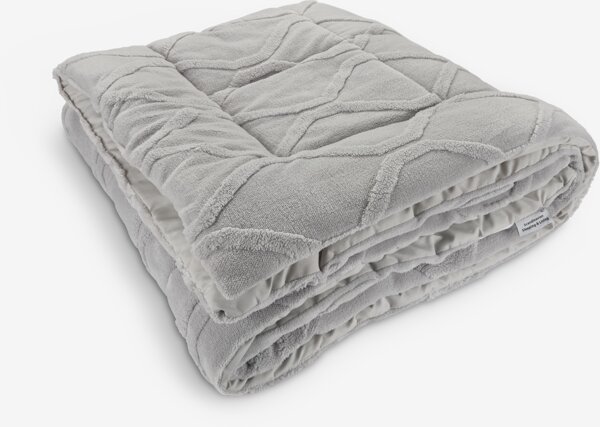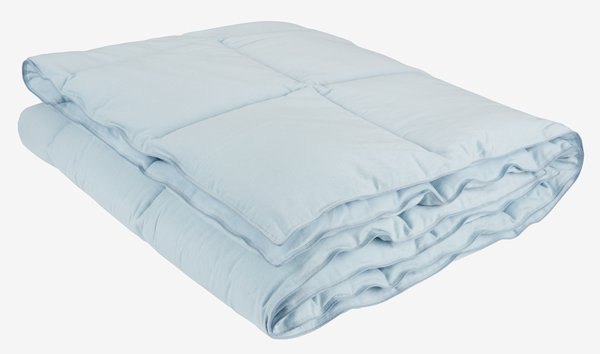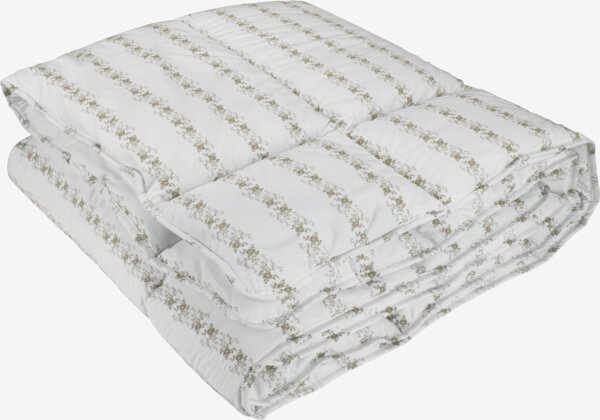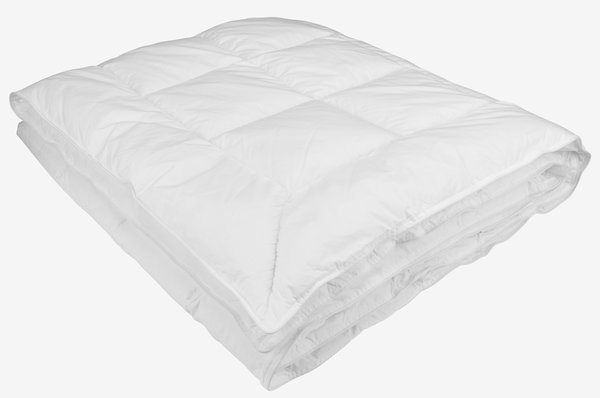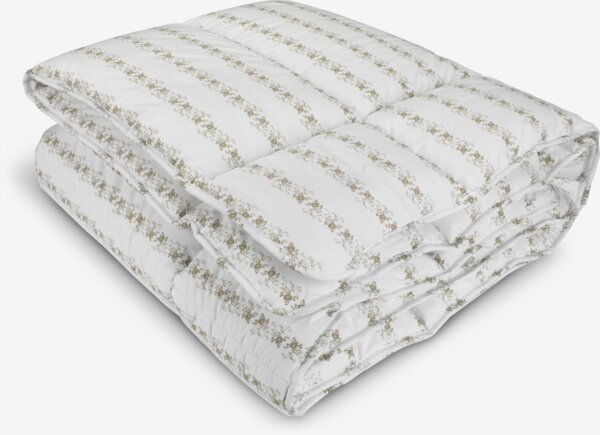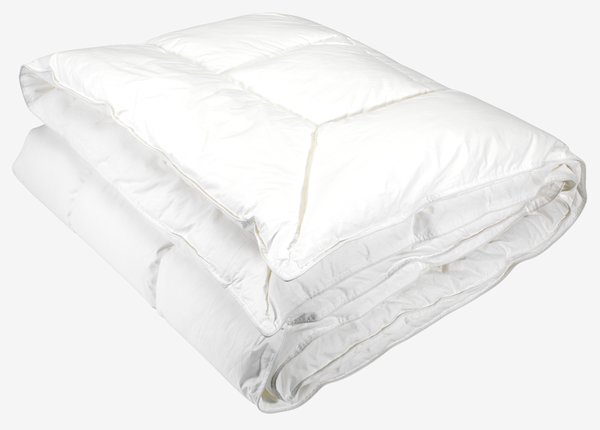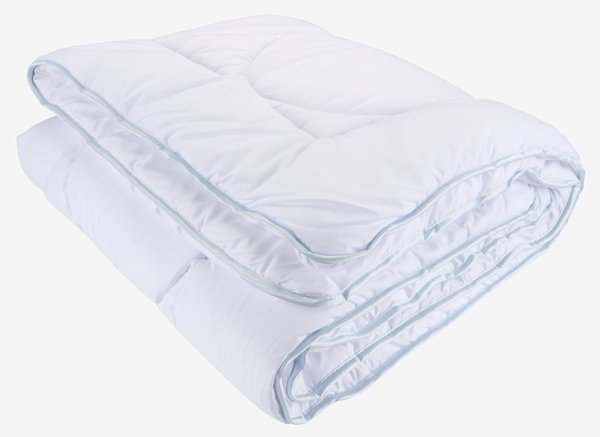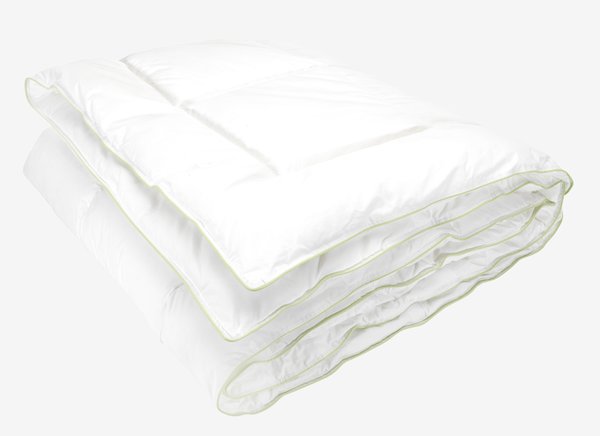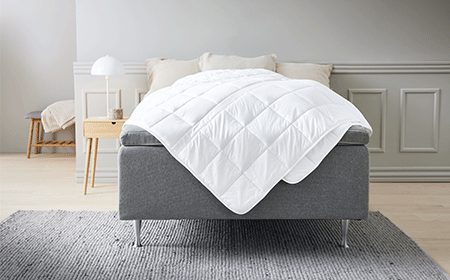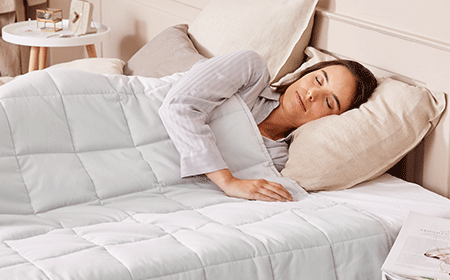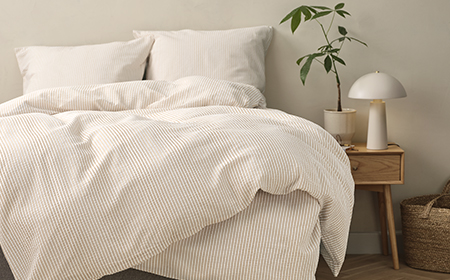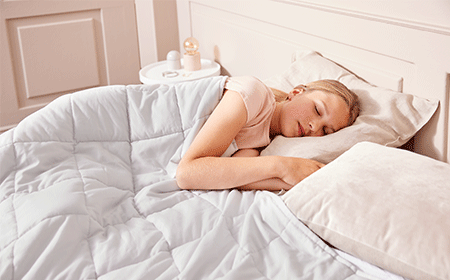This guide gathers all our best advice on how to buy a new duvet and how to choose the best duvet for your specific needs. One of the key tips for sleeping is making sure that you have duvet that lets you sleep without getting too warm or cold.
The guide focuses on the most important elements to consider when it's time to select a new duvet. It covers everything from materials, sizes, and properties – all factors that will impact your sleep. We also offer some specific guidelines that can help you determine which duvet is right for you.
1. What characterises a good duvet?
A duvet is not just a duvet. How well you sleep at night is highly dependent on whether you have chosen a duvet that fits your specific needs. It's important to consider all the following factors: size, fill power, weight, how often you replace your duvet, and how much you want your duvet to surround your body while you sleep.
In the following chapters, we'll take a closer look at all these factors in order to make your duvet selection easier.
2. How to choose the right duvet size
The first step in choosing a duvet that will help you sleep better is to keep your height in mind when considering your options. As a rule of thumb, the duvet should be 20-30 cm longer than your height.
When should I consider changing the size of my duvet?
Larger duvets come in a variety of sizes, e.g., double, king size, and super king size, and fit different bed sizes and personal preferences.
Selecting the best size for you is largely a matter of how you plan to use the duvet. For example, if you plan to sleep alone and want to utilise the extra width to tuck the duvet under you, a double duvet should be just fine. But if you are looking for one duvet for both you and your partner, the extra 20 to 40 cm in width could be very useful.
Check out our in-depth guide to choosing the perfect duvet size.
What size duvet should I buy for my child?
An adult duvet will be too big for most children under school age. If you have young children, you should consider a junior duvet instead.
Your child's height will influence when you should switch from one size to the next. But changes in their sleeping patterns can also reveal when it's time for a larger duvet.
A duvet of 100x140 cm will fit a child from about 1 year and up to school age.
3. Tog rating, fill power, and temperature
When it comes to a duvet's temperature, JYSK duvets are divided into three categories: cool, warm, and extra warm. The right type for you depends on:
- When in the year you plan to use it – summer or winter
- If you prefer to feel warm or cool at night
- Your own body temperature while you sleep
The temperature of a duvet with natural filling (e.g. a feather/down duvet), is determined by its fill power and its tog rating. The higher the fill power, the better the duvet is at maintaining warmth. A duvet with low fill power needs more filling to feel warm, while a thinner duvet can hold heat and keep you warm if it has a high fill power. Learn more about fill power in our blog post: What does duvet fill power mean?
For an in-depth look into tog rating for duvets, check out our blog post: The right duvet for the right temperature: A guide to duvet tog.
Fill power is determined by three factors:
- The duck/goose species
- The quality
- The proportion between feathers and down
Should you buy a weighted duvet?
A weighted duvet is an extra heavy duvet you can sleep with at night. Many people experience a calming effect when they sleep with a weighted duvet. This makes weighted duvets popular in the health and wellness sectors.
The most distinctive characteristic of a weighted duvet is, yes, its weight. A standard fibre, feather, or down duvet weighs one to two kgs. A weighted duvet is significantly heavier.
Weighted duvets are filled primarily with small glass pearls. These small glass pearls account for as much as 95 percent of a weighted duvet's filling. The pearls make the duvet extra heavy and allow it to form itself in your body. If you try a weighted duvet, you will immediately notice that it clings to your body.
The right weighted duvet depends on your own weight. A rule of thumb says that the duvet should be 10-15 % of your own weight. If you weigh between 50-70 kg, a 7 kg weighted duvet is probably right for you. If you weigh between 70-90 kg, a 9 kg weighted duvet is probably right for you.
Read more about why a weighted duvet could be an option for you.
4. How much does a duvet cost?
In JYSK, we have duvets for every need and budget. The price of a duvet depends on its materials and its quality. The first step in finding a duvet that matches your budget is to understand the three quality ranges that we have divided our duvets into here at JYSK: BASIC, PLUS, and GOLD.
For an in-depth look into duvet costs, check out our blog post about how much duvets cost and why.
Single duvets
Fibre filling | Natural filling | |
BASIC | ||
PLUS | ||
GOLD |
Double duvets
Fibre filling | Natural filling | |
BASIC | ||
PLUS | ||
GOLD |
How does the duvet's filling affect its price?
Quality and price go hand in hand. In order to make sense of a duvet's price, it's important to know about the most common types of filling in natural and fibre duvets.
Natural filling
There are different types of natural filling.
Feathers | Feathers are an affordable natural material with low insulating power. A high share of feathers results in a relatively heavy duvet which is preferred by some people. |
Duck down | Duck down has better insulating power than feathers. |
Muscovy down | Muscovy down is smaller than duck down and has good insulation ability. |
Goose down | Goose down has a high insulating power and contributes to a nice and airy duvet. |
Eiderdown | Eiderdown is considered one of the warmest and lightest natural materials in the world. |
Fibre filling
Fibre filling is available in different qualities.
Two-dimensional fibre | Standard fibre filling is what is known as two-dimensional fibre in the bedding business. It is an affordable product. |
Three-dimensional fibre | Three-dimensional fibre is also called hollow fibre. At JYSK, our hollow fibre comes in three versions: one-hole, three-hole and seven-hole. The holes are filled with air and thus increase the filling's insulation power. |
5. How often should you replace your duvet?
As a general guideline, you should replace your duvet every five to ten years, but it depends on the quality of the duvet – both those with natural filling and those with fibre filling.
A worn-down duvet will result in less sleeping comfort. In order to know when it's time to replace your duvet, you should pay close attention to the following:
1. Volume: The most important thing to be aware of is the duvet's filling. Does the filling have the same volume as when you bought the duvet?
2. Clumps: You should also keep an eye on the distribution of the filling. Is it distributed evenly throughout the duvet or is the filling beginning to clump together in certain areas? If you experience that the filling clumps together, please shake your duvet well.
3. Lining: When small holes emerge in the fabric, the duvet's filling is likely to start falling out. Keep an eye out for holes when you change your bedding.
4. Appearance: If you see stains and discolouration on the duvet that won't wash out, it is time to replace the duvet.
If you want more information about indications that it's time to replace your duvet, check out our blog post: How often should you buy a new duvet?
6. The best duvets
If you're looking for a new duvet, you may find yourself overwhelmed by the many different available options. You can have a look at our blog post about the best duvets for sleep problems or your can visit your local JYSK store. We are always ready to advise you on your duvet choice so that you end up with a model that matches your needs and budget. We offer a large assortment of duvets at various price points and for different needs. You can see our full assortment here.
You can also read our other guides to get tips on sleeping and creating the best possible sleeping environment, such as our blog post about our Buyer’s favourite bed linen from our wide bedding assortment.
